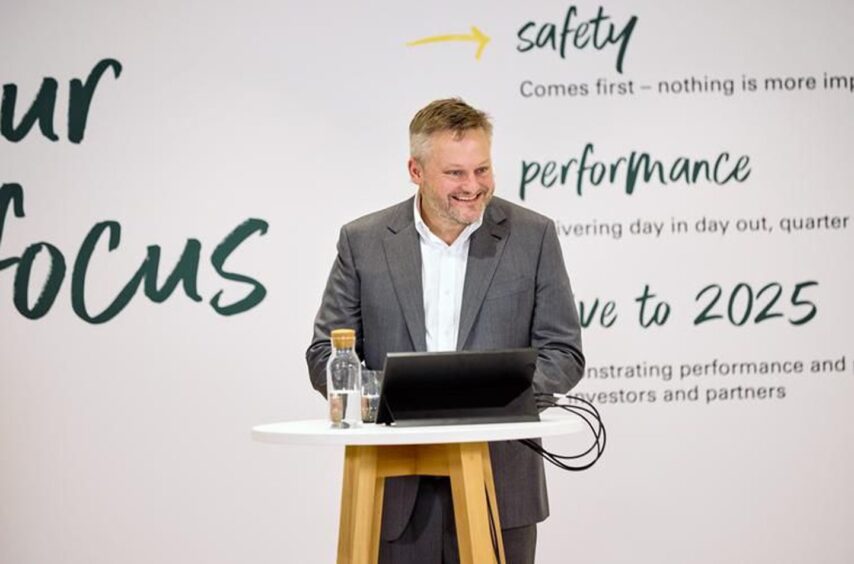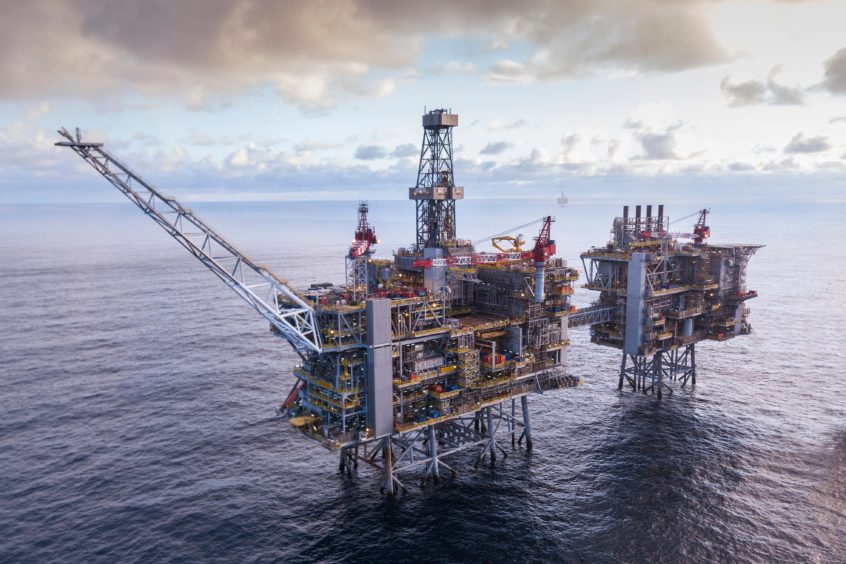
BP will step back from acquisitions in the coming years as it weighs ‘big decisions’ over new project sanctions, CEO Murray Auchincloss told investors.
Having delivered a healthy replacement cost profit of $13.8bn in its full-year results – reportedly its second largest earnings in a decade – BP’s (LON:BP) management made clear their intention to stick with their present strategy.
Speaking during an investor briefing accompanying the results, CEO Murray Auchincloss said the company would continue to focus on “higher margins with lower emissions” but now weighed “big decisions” over a raft of major project sanctions over the next two years.
Up to 16 projects on horizon
The supermajor has 12-16 potential major projects on its books, Auchincloss said – a hopper he hoped would enable the company to become “much more competitive” after several years of sluggish reserves replacement.
Under former boss Bernard Looney the company had sought to slash oil and gas output by 40% by 2030, though a strategy shift saw this cut to 25% last year.
Production is now targeted to reach 2 million boepd by 2030 – down from 2.6m in 2019 – though Mr Auchincloss suggested the current wave of sanctions would determine the split of gas and liquids within that portfolio.
“We see the capacity to grow our oil production so to speak by 2-3% through 2027. As we look ahead over the next two years we have some big decisions on sanctions as well that will determine what happens beyond that.”
He pointed to major oil projects including Cabo Frio in Brazil; Bay du Nord in Canada; Kaskida, Tiber and Gila in the Gulf of Mexico; the Clair expansion west of Shetland and another expansion in Abu Dhabi, as well as a “plethora” of potential gas sanctions.
“We have these massive projects, some of which are held 100%. Let’s see how we go on those. If we decide to sanction more of them rather than less, then I think we can do better than that 2-3%.
“But I’m not going to be focused on volume, I’m super focused on returns.”
Clair Phase Three as it is now known is the next stage of development at the Clair field West of Shetland, which remains the largest hydrocarbon accumulation in Western Europe with a total seven billion barrels in place.
UK managing director Doris Reiter last year told Energy Voice that a bridge-linked platform is being considered, which could be bolted on to the existing Clair Ridge facility, though an all-subsea development could also be selected.
A final investment decision on the next phase has been mooted for this year.
Meanwhile, drilling is now underway at the North Sea’s Murlach development, ahead of first oil expected in 2025.
‘Pause’ on M&A
Meanwhile Mr Auchincloss also suggested he would not look to shake up BP’s structure, as has been seen at rival Shell under CEO Wael Sawan.
He pointed to the “huge change” across the organisation in 2020 during which the company axed 10,000 roles globally – around 2,000 of which were thought to be in the UK.
“I don’t want to do that again,” he added. “That was needed but really demanding on people and on the corporation. Some of those changes took a couple of years to enact in places like Europe.
“So I don’t want to do a mass change of structure, I don’t think we need to either – however there are places where we are inefficient.”
He instead vowed a “gradual” programme of change to reposition these portions of the business.
M&A activity is also poised to slow down.
“We’ve already done a lot. There are only so many of these things you can do at once and still deliver them effectively,” he told investors.
“We’ve probably got one or two more in us for the next couple of years and then that’s about the saturation point for actually integrating these things effectively.”
BP has undertaken major transactions including a takeover of EDF’s North American business, as well as Archaea Energy, TravelCenters and the full takeover of former joint venture Lightsource.
“These are big transactions and they represent north of 12% of our overall value, which is similar to some of the big transactions we’ve seen in the US from some of our competitors on an equity basis,” Mr Auchincloss said.
“It’s injecting a lot of people into the business… So it’s time now to pause on acquisitions, we might do a few more, but pause on them and focus on the hard work of integrating the systems, people and processes of these entities, and that’s what we’re really focused on right now.”
Unchanged strategy
The CEO also shrugged off criticism by activist investor Bluebell Capital, after it last month called on BP to abandon commitments to reduce oil and gas output and other parts of its clean energy strategy which it claimed are “destroying” shareholder value.
“We disagree with their assertions,” noted Auchincloss.
He pointed to the integration of LightsourceBP, which he hailed as a “top five” solar producer globally and which has achieved “mid-teens returns” over the past five years.
As for its wider offshore wind strategy, he said hurdle rates for projects would be 6-8% unlevered – but coupled with farm in partners, and integrated into BP’s wider value chain would produce “well into double-digit returns”.
“We’re happy with our strategy,” he continued. “The direction is unchanged. You’ll see us be much more focused much simpler and very returns focused but we’re happy with the direction of travel and the shareholders I talk to are happy as well.”
Recommended for you

